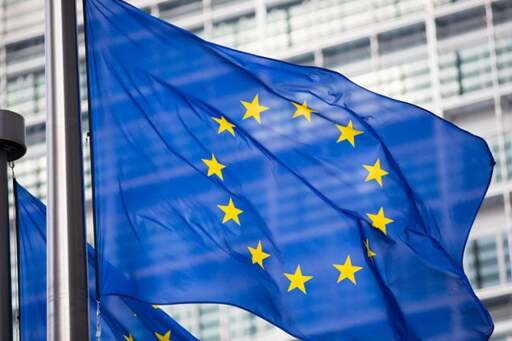- 15 Posts
- 64 Comments

 6·3 months ago
6·3 months agoTrue, it’s a long time until the next UK general election. Maybe Reform’s vote will suffer before then. Alternatively the local elections and by-elections could be a boost for them, I dunno.
Anyway, maybe we should have proportional representation in the UK. Even if Reform had 25% of the vote and therefore 25% of the seats in parliament, that would mean that 75% of parliamentarians wouldn’t be Reform members.
Our current system allows a party with minority support (potentially Reform in the future) to win a majority of parliamentary seats. In 2019, the Conservatives won 44% of the vote, which gave them 56% of seats. Last year, Labour won 34% of the vote, which gave them 63% of seats.

 36·3 months ago
36·3 months agoHe spends quite big sums on healthcare I think? I’m not saying he’s a perfect guy. Maybe the world would be better if taxes were such that nobody could be a billionaire. I just think I prefer Bill Gates to other billionaires, especially the prominent South African one.

 37·3 months ago
37·3 months agoAt least Bill gives away a lot of his money, and his stance on politics seems relatively sensible and measured. Whereas the South African billionaire gets a kick out of being stupid and damaging to the US (and beyond the US if you look at his comments on foreign politics).

 28·3 months ago
28·3 months agoIt’s similar in the UK currently. The UK’s equivalent of AfD is Reform UK who are apparently the leading party in the polls (source):
Reform UK in front on 25%, Labour on 23% and the Conservatives on 20%, with the Lib Dems on 16% and Greens on 10%

 2010·3 months ago
2010·3 months agoI know people want to hate on Bill for being rich, and I can understand that, but I still prefer him to a certain South African billionaire.
Maybe some people will say that’s like comparing a giant douche to a turd sandwich though.

 1·3 months ago
1·3 months agoThey do those things to some degree, but those things remain banned for under 18s, which I suppose reduces harm, even if it doesn’t fully eliminate harm.

 3·3 months ago
3·3 months agoI bought some for family members. Others in the supermarket yesterday were buying them too. Supermarkets probably do bring in a lot of stock in the run-up to Easter.
I wonder what happens to the unsold stock. Sold at a discount after Easter maybe? I’ve never noticed that but I’ve never bothered to look really.

 2·3 months ago
2·3 months agoFair points. At least with real life politicians you can find out about their past behaviour though, if you do some reading.
On the internet people can just easily lie about who they are. There might be a propagandist on social media who has a strong foreign accent, so in real life you’d know they’re from a foreign country, but on the internet you can’t hear their accent, so they can easily lie about where they’re from.
Also even just for casual interactions on social media (e.g. Reddit), I think one of the reasons that people get so angry in discussions/arguments is because they don’t have to see the face of the other person. I guess it’s like a dehumanising interaction.

 4·3 months ago
4·3 months agoJean-Marie Le Pen got 18% in 2002 apparently, but his daughter in 2022 got 41%.
Anyway. I think it makes sense that Europe shouldn’t just allow itself to be propagandised by the USA. Maybe Europe should bring in a law saying that, for example, Musk can’t boost the visibility of his own account on X (here is a news story saying that he did that).
I suppose a properly pro-democracy social media platform would be neutral and fair, rather than boosting certain types of content.

 3·3 months ago
3·3 months agoTrue. Another thing that I think is artificial about social media is anonymity. In real life you can see who somebody is when you’re talking to them - you know whether they’re lying about their age, or accent, or whatever. But online you could have an American pretending to be a European, or a Russian pretending to be an American, etc. And anonymity seems to encourage some people to be more abusive and insulting than they would be in real life, talking to real people.
Anonymity might have some genuine uses though (like trying to escape persecution from your country’s government).

 2·3 months ago
2·3 months agoBy that logic we shouldn’t ban anything for teenagers. But we do: smoking, gambling, alcohol, etc.

 2·3 months ago
2·3 months agoPeople like Nigel Farage would probably say “they’re trying to rig democracy by making you vote again and again until you choose the ‘right’ answer”. And some Brexit voters would probably believe that narrative.
I think it’s definitely possible that there will be a push from the British public to rejoin the EU, at some point. Maybe in 5 to 10 years though.

 3·3 months ago
3·3 months agoI’m not saying I necessarily agree with the idea that getting too close to the EU would be a mistake. I think it makes a lot of sense for the UK to have strong ties with the EU.
Brexit was a massive headache for Britain so I think that’s why the UK government doesn’t want to open up that argument again immediately. I guess Starmer does want to build stronger ties with Europe, but he probably wants Brexit-voters (many of whom were from poorer parts of the UK) to feel like their vote is being honoured. If they feel they have been completely ignored then they might give their support to Reform UK, Britain’s equivalent of AfD.
Not a bad goal. Talking of survival makes me think of this:


 71·3 months ago
71·3 months agoJupiter, the emperor of Europe…


 1·3 months ago
1·3 months agoSome people do seem to hate summer. I really like it though, definitely my favourite season. I can wear a t-shirt and shorts outside, instead of putting on tons of clothes just so I don’t freeze to death.

 31·3 months ago
31·3 months agoThat would be great. “Get tae fuck ya wee bawbag” (I think that’s the kind of thing Scots say)
Unfortunately I think they’ll stick with the USA

 7·3 months ago
7·3 months agoYou could say Germany isn’t unique though. The US is also split between those who want to be friendly with Russia (Republicans) and those who don’t (Democrats).
With Germany I guess Merkel believed that business ties with Russia would persuade Russia to not threaten Europe, but now that theory has been disproven, so Germans seem to be more supportive of the idea of cutting ties with Russia and boosting Germany’s defence spending.

 2·3 months ago
2·3 months agoIt’s odd that the article title says “majority of Europeans” when the article itself makes clear that only some western European countries were surveyed. So I thought people should know that.








Brit here. I think this is the most common tea-making process for Brits:
Also you need to remove the teabag from each mug if you brewed the tea straight in the mug. I usually remove it before adding milk, but I think some people remove it after adding milk.
I think the most common variety of tea in the UK is called English Breakfast. If you’re in another country and you find English Breakfast tea then that’s probably the most similar to standard British tea. Some Brits have other types of tea like Earl Grey, but that’s not as common.
See the steps about milk and sugar above.
I think most Brits like relatively strong tea, where the teabags have had a proper chance to brew. Some Brits might prefer weaker tea though.
I think a lot of Brits would say there’s never a bad time for tea.
It’s not that common in the UK. You can buy bottles of iced tea in the average British supermarket, but it’s a bit of a niche drink.